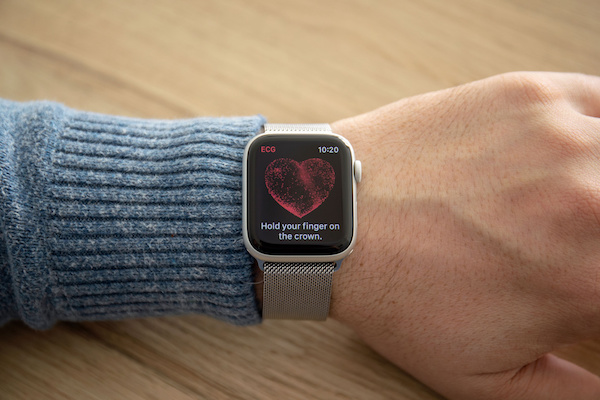How Seriously Should You Take a Smartwatch’s AFib Alert?
- Category: Health
- Published: Wednesday, 31 July 2024 17:30
- Joanne Wallenstein
 (The following was submitted by Martha G. Ferrara, Nurse Practitioner at White Plains Hospital)
(The following was submitted by Martha G. Ferrara, Nurse Practitioner at White Plains Hospital)
Advancements in technology continue to occur at a rapid pace – so rapid, in fact, that they may cause your heart to beat a little faster. But when it comes to smartwatches, they can convince someone that their altered heartbeat means they have atrial fibrillation (AFib), a serious condition that poses an increased risk of stroke and heart failure.
AFib is a quivering or irregular heartbeat (arrhythmia) that can lead to those and other heart-related complications. Over 12 million people are projected to have AFib by 2030, according to the American Heart Association, which says the condition increases the risk of stroke fivefold.
We all want to be aware of potential risks to our health, but in this case, a little information can perhaps not be enough. Our office is, on many days, overwhelmed with owners of an Apple Phone, Fitbit, Samsung Galaxy, and similar devices that have provided a “you may have AFib” alert – and who are understandably concerned.
Smartwatches use a kind of electrocardiogram (ECG) technology that monitors blood flow and heart rate throughout the day; any irregular rhythms are then “alerted.” One of the problems we are encountering is that the technology may be outpacing the reality.
I am certain that most of us have at some point felt that odd sensation indicating an irregular heartbeat or even the “skipping” of a beat. But is that enough to conclude that you have AFib?
The answer is “no,” according to the U.S. Preventive Services Task Force (USPSTF). That organization issued a report in January 2022 finding that the likes of smartwatches and smartphone apps, automated blood pressure cuffs, and pulse oximeters are no match for an ECG screening of an asymptomatic patient in a healthcare provider’s office when it comes to an accurate AFib screening.
To be clear, the USPSTF is not saying that such devices’ alerts are invalid – just that there is not enough data to conclude that asymptomatic patients should completely trust those devices’ suggestive diagnoses.
Fortunately, technology companies appear to be aware of this ever-more-complex situation. Representatives from many areas and disciplines, such as cardiac device industry, tech companies, entrepreneurs, scientists, and engineers attend the annual HRX meeting – a digital health conference sponsored by the Heart Rhythm Society, the leading scientific organization on cardiac pacing and electrophysiology, now in its third year. They are joined by electrophysiologists and nurse practitioners like me, as well as physicians and many stakeholders in this area, to engage in an open and collaborative discussion about the current situation and the exciting potential for digital health “wearable” tools going forward.
In addition, White Plains Hospital’s Cardiac Electrophysiology program remains at the forefront of the specialty, having been selected to participate in a study sponsored by the National Institutes of Health and Johns Hopkins University. The multi-year, nationwide study known as the REACT-AF trial is a randomized, controlled trial exploring the incorporation of wearable technologies into the management of AFib and usage of anticoagulation (“blood thinners”) therapy.
I believe that such collaborative sharing of knowledge and information is the wave of the future – one that will no longer find patients stranded somewhere in the middle but focus our patients at the center of care.
In the meantime, if you do receive an AFib alert and are concerned about what it could mean, contact your primary care physician to discuss. Feeling heightened anxiety or even panic is never a good thing, especially without understanding your own medical history. Your PCP should be able to set your mind, at least partly, at ease by either ruling out AFib or by recommending you see a specialist. Martha G. Ferrara is the Assistant Director of Electrophysiology Services at White Plains Hospital. For an appointment, call 914-849-2690.
Martha G. Ferrara is the Assistant Director of Electrophysiology Services at White Plains Hospital. For an appointment, call 914-849-2690.
Health Matters
The original version of this article was published in Health Matters, a White Plains Hospital publication.






